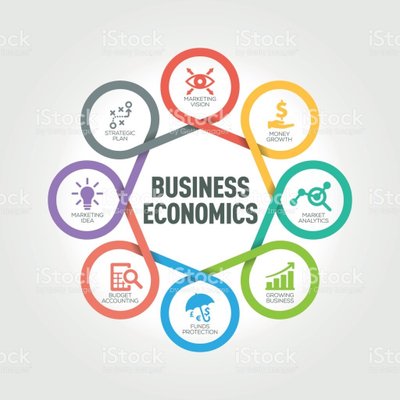Exploring the Impact of Technological Advancements in Business and Economics Currently
Exploring the Impact of Technological Advancements in Business and Economics Currently
Blog Article
Business and Business Economics 101: Necessary Expertise for Aspiring Leaders
In today's quickly evolving organization landscape, aspiring leaders have to grow an extensive understanding of fundamental financial concepts and calculated frameworks. Understanding ideas such as supply and demand, market structures, and competition is not merely scholastic; these components are critical fit effective decision-making and promoting technology. Monetary proficiency-- specifically in cash flow monitoring-- serves as a foundation for sustainable growth. As we check out these necessary subjects, it ends up being noticeable that the intersection of company acumen and financial insight is crucial for future leaders to not only survive but prosper in their ventures. What ramifications does this have for calculated leadership?
Recognizing Supply and Demand
Supply and demand are essential principles that constantly underpin the auto mechanics of any kind of market economy. The partnership in between these two pressures identifies the cost of products and services along with their accessibility out there. Supply describes the amount of an item that manufacturers are able and eager to offer at various cost levels, while need reflects the amount that consumers are eager and able to acquire.
When demand increases without a matching increase in supply, prices often tend to rise, indicating producers to boost result. Conversely, if supply overtakes demand, costs may fall, triggering manufacturers to minimize result. This dynamic interplay helps to attain market equilibrium, where the amount supplied matches the quantity demanded at a specific price point.

Exploring Market Frameworks
Market frameworks specify the competitive atmosphere in which organizations operate, considerably affecting their pricing methods, result degrees, and total success. Recognizing these structures is essential for striving leaders, as they shape business decisions and market characteristics.
There are 4 main sorts of market frameworks: excellent competitors, monopolistic competitors, oligopoly, and syndicate. In a perfectly affordable market, countless firms provide the same products, bring about price-taking habits. Monopolistic competitors functions many companies offering differentiated items, enabling some prices power. Oligopolies consist of a couple of leading firms that can influence market value, often leading to tactical communications and competitive behavior. Lastly, syndicates exist when a single firm regulates the marketplace, causing the highest degree of pricing power and possible market inadequacies.
Each market structure provides one-of-a-kind obstacles and chances for services. Leaders need to understand these nuances to successfully place their organizations, establish competitive strategies, and react to market changes. By understanding the implications of numerous market structures, aiming leaders can make informed choices that drive their businesses towards sustainable success and growth in an ever-evolving economic landscape.
Financial Concepts for Leaders
Efficient management in organization necessitates a strong understanding of monetary principles, as they underpin critical decision-making and resource allocation. Leaders need to wikipedia reference realize vital concepts such as capital administration, earnings analysis, and economic forecasting. These components are critical in analyzing a company's economic health and directing its future instructions.
Cash circulation monitoring is specifically essential; it makes certain that the organization maintains sufficient liquidity to fulfill its responsibilities while seeking development possibilities. Assessing success enables leaders to determine which products or services produce the highest possible returns, site web enabling enlightened financial investment choices. Furthermore, financial projecting aids expect future earnings and costs, helping with more exact budgeting and source allocation.
Moreover, comprehending economic statements-- such as balance sheets, revenue declarations, and cash money flow declarations-- furnishes leaders with the understandings needed to make educated selections. This understanding cultivates liability and openness, boosting stakeholder trust fund.
In today's dynamic organization environment, leaders need to be skilled at analyzing economic information to react swiftly to market modifications. Inevitably, a solid understanding of economic concepts equips leaders to drive their organizations towards sustainable success while successfully taking care of resources and risks.
The Function of Competition
Comprehending the function of competitors is essential for any type of business intending to grow in a saturated market. Competitors drives technology and effectiveness, compelling organizations to improve their services and products constantly. In a competitive landscape, firms need to separate themselves to bring in and retain consumers. This differentiation can materialize with premium high quality, one-of-a-kind attributes, or extraordinary client solution.
Furthermore, competitors can result in far better pricing strategies. As companies try market share, they are incentivized to offer affordable prices, benefiting consumers while difficult services to manage costs effectively. This vibrant fosters a society of regular improvement, pressing organizations to streamline procedures and boost value proposals.
Additionally, competition can boost market growth by motivating brand-new entrants. New services frequently present fresh ideas and More hints approaches, better improving the general market landscape. Business have to also be vigilant; too much competitors can lead to market saturation, lowering profitability for all players entailed.
Ultimately, understanding and navigating competition is essential for leaders. By acknowledging its multifaceted role, striving leaders can make educated choices that position their organizations for long-lasting success in an ever-evolving market.
Strategic Decision-Making
In the realm of company, tactical decision-making is essential to adjusting and achieving long-lasting goals to changing situations. This process entails assessing various alternatives and selecting one of the most reliable strategy that aligns with the company's vision and goals. Effective strategic decision-making requires a comprehensive understanding of both external and inner atmospheres, consisting of market patterns, affordable characteristics, and business capabilities.
Secret components of tactical decision-making include information analysis, stakeholder engagement, and danger assessment. Leaders have to gather relevant details, examine it critically, and forecast potential end results. Engaging stakeholders fosters cooperation and makes sure that diverse point of views are taken into consideration, enhancing the high quality of decisions made - Business and Economics. Additionally, assessing dangers related to each alternative allows leaders to prepare for obstacles and develop contingency strategies.
Inevitably, successful calculated decision-making encourages organizations to navigate intricacies, take advantage of opportunities, and respond proactively to dangers. By growing a society that values informed decision-making, companies place themselves to introduce and keep a competitive edge in an ever-evolving organization landscape. Aspiring leaders should refine these abilities, as their ability to make audio calculated choices will substantially influence their organizations' success and sustainability.

Verdict
Recognizing the duty of competitors more enhances critical reasoning, making it possible for leaders to navigate intricate market characteristics. Inevitably, this foundational expertise equips future leaders to introduce and line up organizational techniques with progressing market problems, leading the means for sustained success and earnings.
Comprehending these concepts is essential for aspiring business leaders, as they create the structure for effective decision-making in pricing, resource allotment, and market strategy. Understanding supply and demand furnishes leaders to browse the intricacies of market changes and consumer actions.
Syndicates exist when a solitary firm regulates the market, resulting in the highest level of rates power and potential market ineffectiveness.
By comprehending the ramifications of numerous market frameworks, aspiring leaders can make enlightened decisions that drive their organizations towards lasting success and development in an ever-evolving economic landscape.
Comprehending the duty of competition further boosts tactical reasoning, allowing leaders to navigate complicated market dynamics.
Report this page